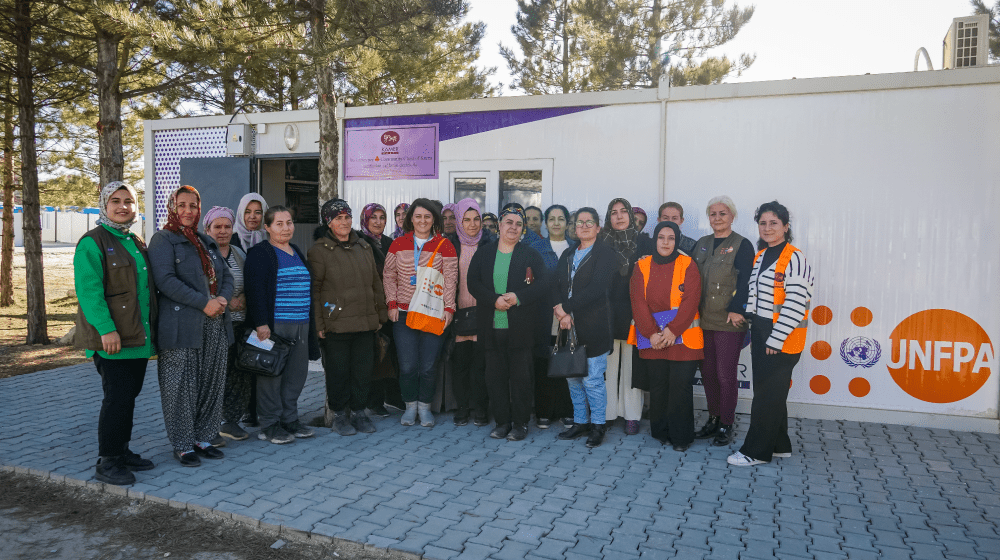Malatya/Adıyaman/Diyarbakır – The United Nations Population Fund, UNFPA Türkiye carried out a vital response to the earthquake-affected region with funds from the Government of Norway, in close collaboration with the partners including the Ministry of Health, Ministry of Family and Social Services, KAMER Foundation and AÇEV (the Mother Child Education Foundation).
Having been initiated in February 2023, with the support provided by the Norwegian Government it was aimed to address the unique needs of women and girls affected by the disaster through women and girls safe spaces (WGSS), mobile teams, awareness raising, learning sessions and capacity building activities, as well as strengthening the healthcare infrastructure and protection services for women.
Establishing Safe Space
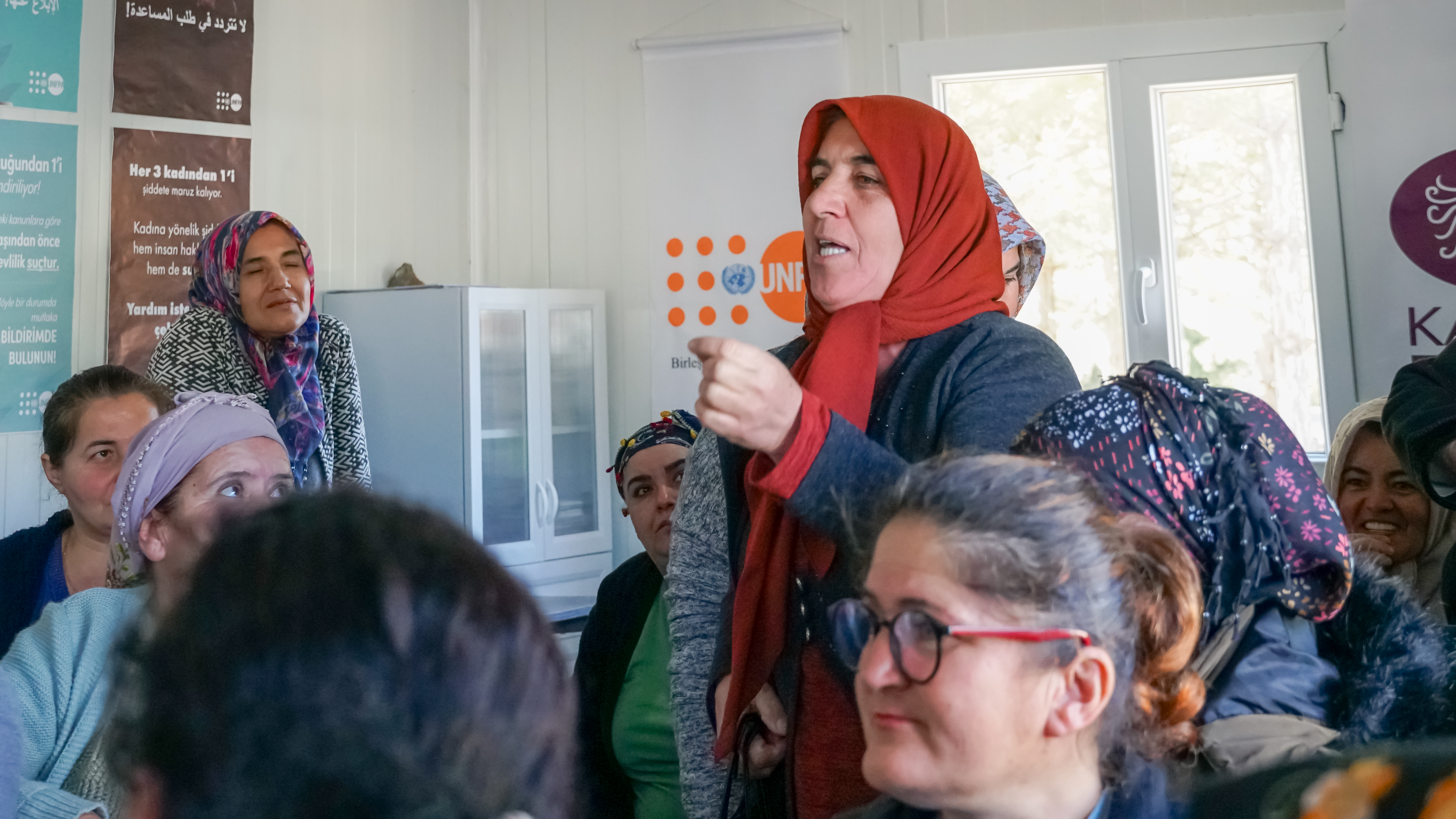
One of the key initiatives of UNFPA involved supporting three WGSSs in Malatya, Adıyaman and Diyarbakır in partnership with the KAMER Foundation. These safe spaces served as crucial hubs for providing support, information, and services tailored to the sexual and reproductive health (SRH) needs of women and girls in the aftermath of the earthquake.
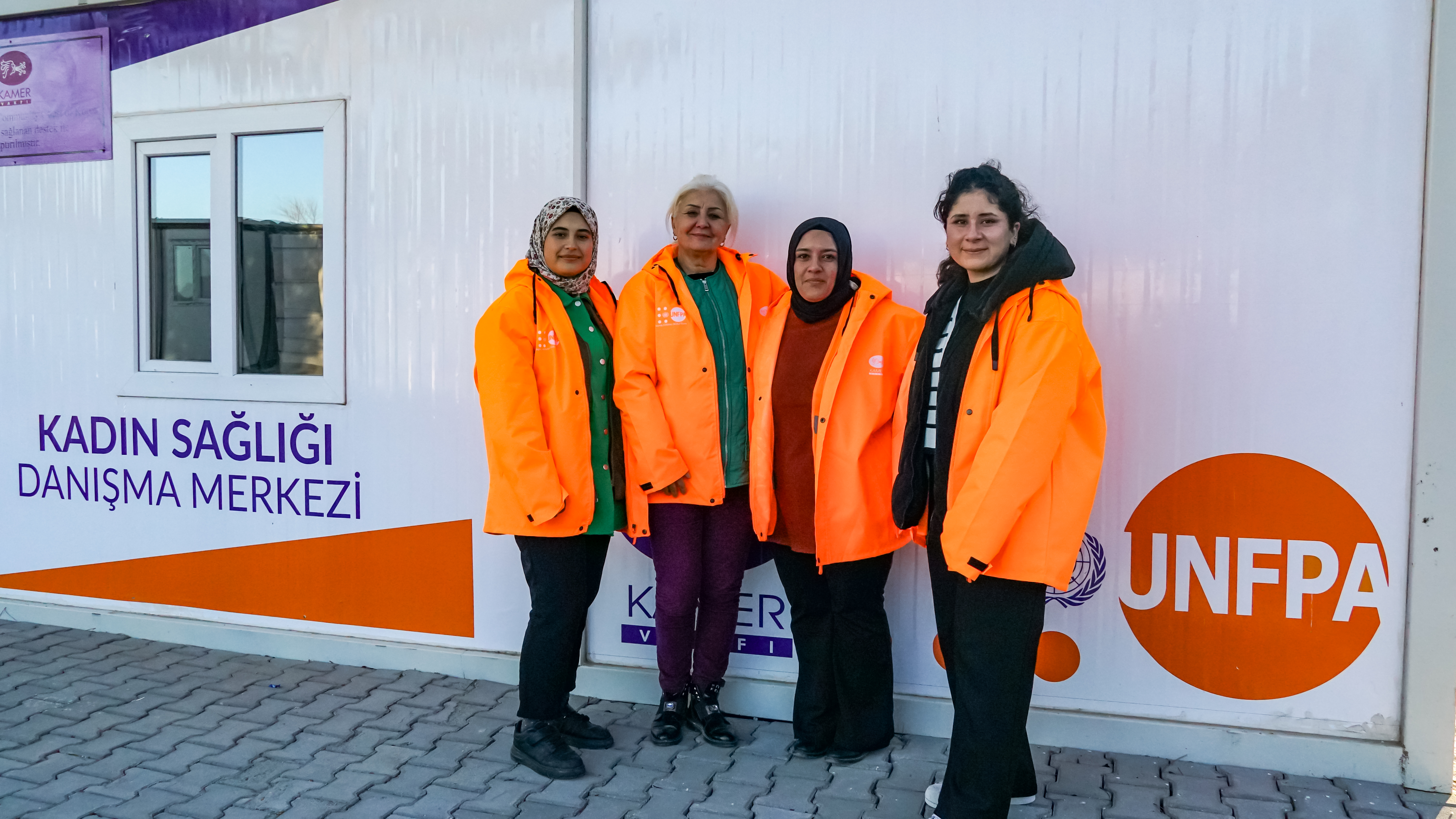
Recognizing the diverse needs of the affected communities, a team comprising a nurse, a social service expert, and an outreach worker worked collaboratively to ensure the effective delivery of services within the WGSSs. This multi-disciplinary approach aimed to address not only the physical but also the social and emotional well-being of the beneficiaries.
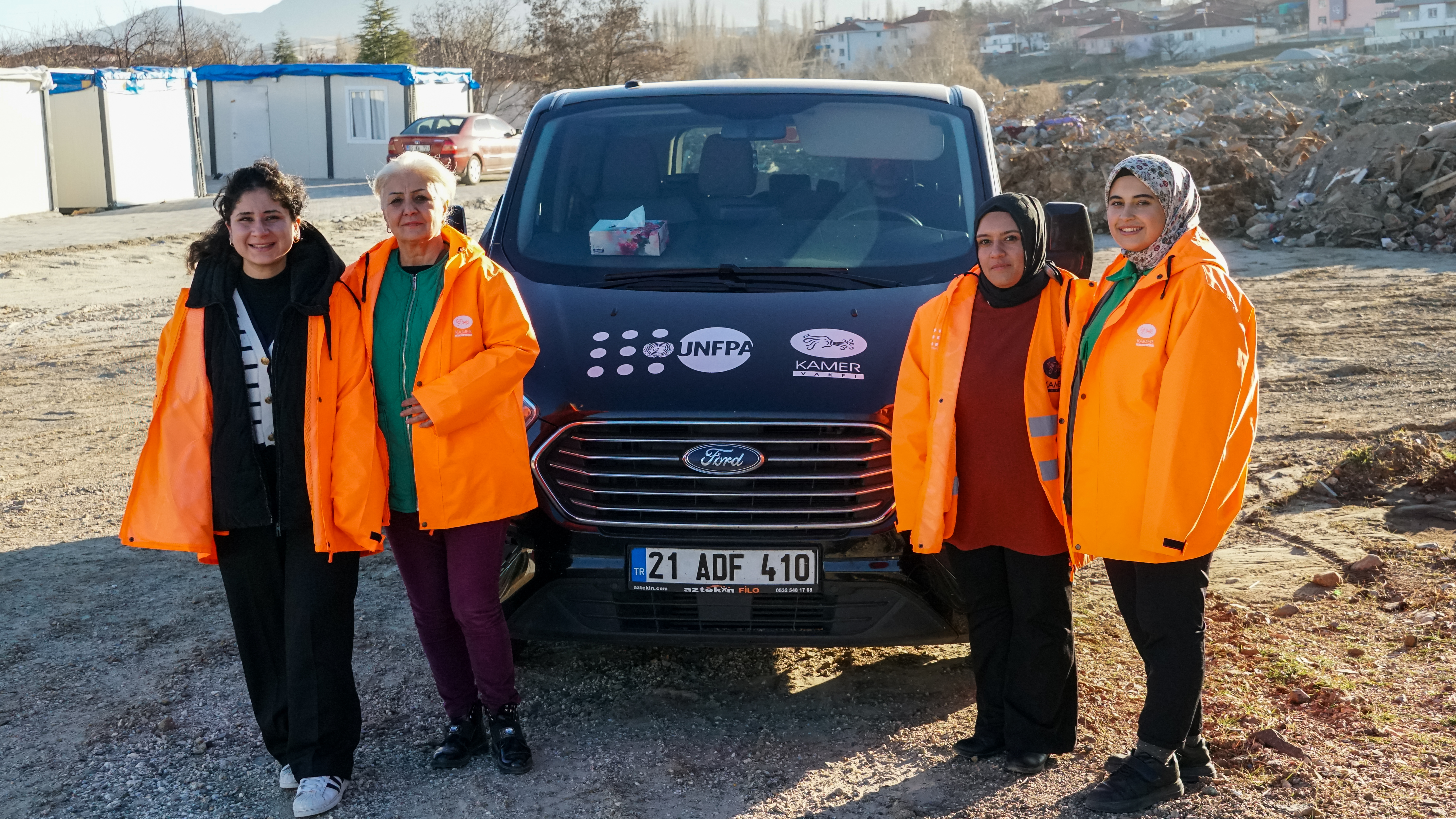
The service provision in the WGSSs is supported by the mobile teams. These teams were equipped to deliver sexual and reproductive health information and counseling as well as gender-based violence prevention and response services directly to communities, ensuring accessibility for those facing challenges in reaching established safe spaces. The teams reach out to remote districts and visit beneficiaries wherever they live.
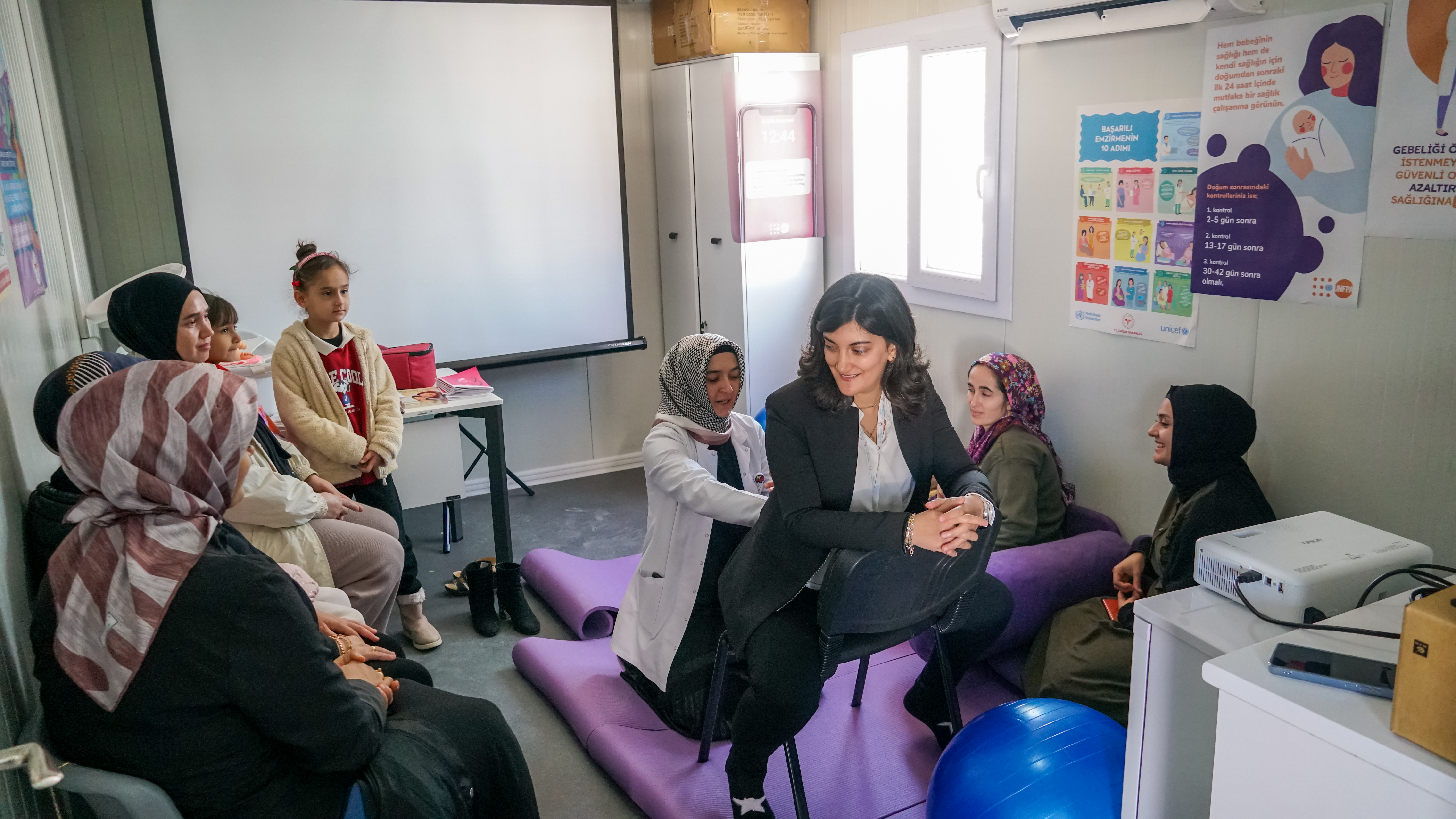
The WGSSs and mobile teams played a crucial role in delivering a variety of services, including:
- Sexual and Reproductive Health Information and Counseling: Trained professionals within the safe spaces and mobile teams offered essential SRH information and counseling services, catering to the specific health needs of women and girls.
- Distribution of Dignity and Maternity Kits: As part of the project, dignity and maternity kits containing essential items for hygiene and maternal care were distributed to those in need.
- Prevention and Response to Gender-Based Violence (GBV): The project actively engaged in combat against GBV, providing preventative measures, relevant information and response services for those affected.
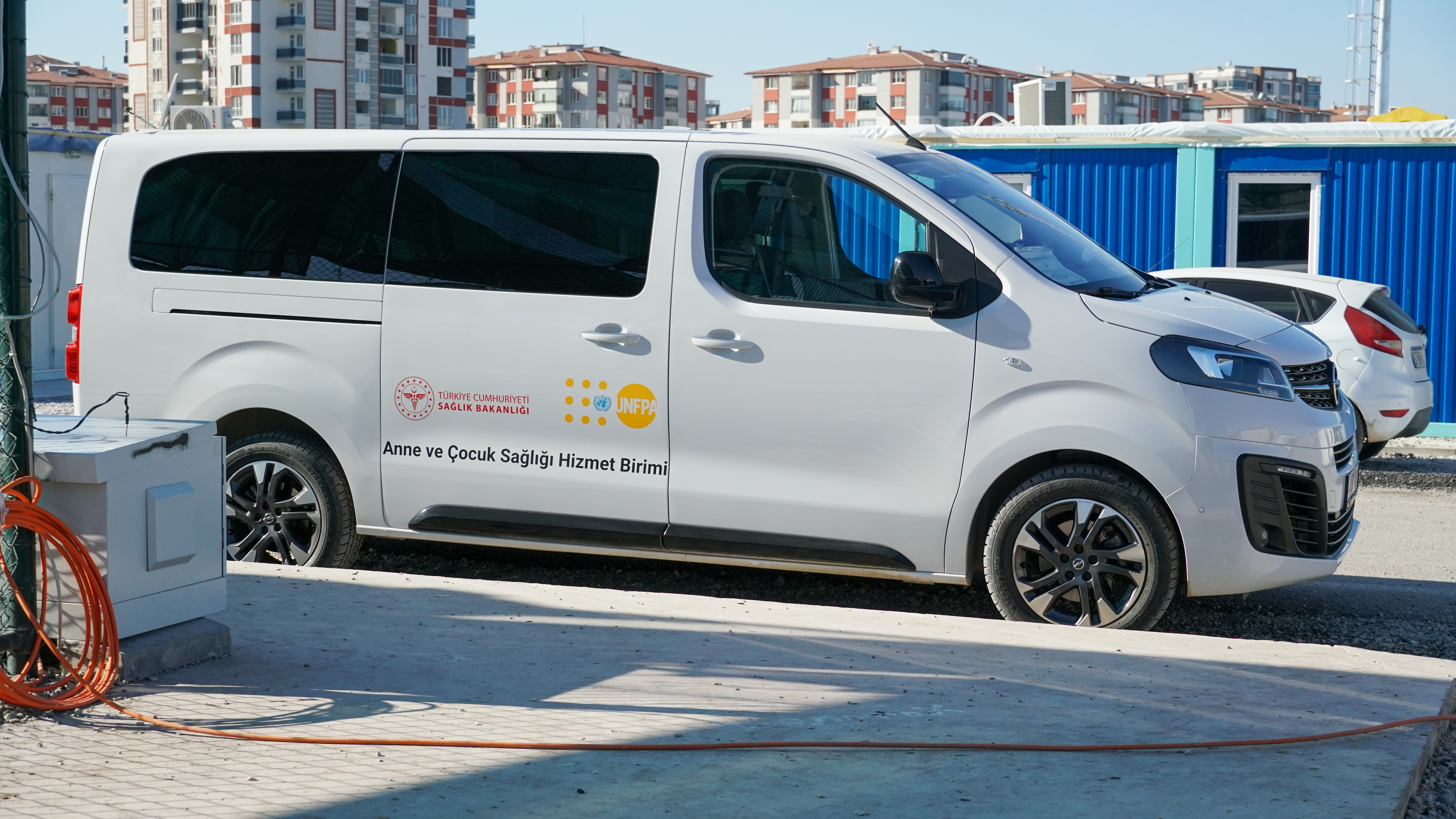
Strengthening Healthcare Infrastructure
In a collaborative effort with the Provincial Health Directorates, UNFPA established fully equipped SRH service units in Malatya, Adıyaman and Kahramanmaraş and increased access of women and girls to SRH services through mobile clinics. Through the support from the Government of Norway, UNFPA provided 14 mobile SRH clinics/vehicles to the Provincial Directorates of Adıyaman, Hatay, Malatya, Kahramanmaraş and Gaziantep.
Moreover, a pregnancy class was established in Malatya in collaboration with the Provincial Health Directorate where pregnant women receive training on health in pregnancy including antenatal and postnatal and newborn care services.
UNFPA also ensured the production and distribution of the IEC materials on SRH through the health service units in the affected region. These contributions aimed to assist in reinforcing the local healthcare infrastructure and ensuring a swift and coordinated response to the SRH needs arising from the earthquake.
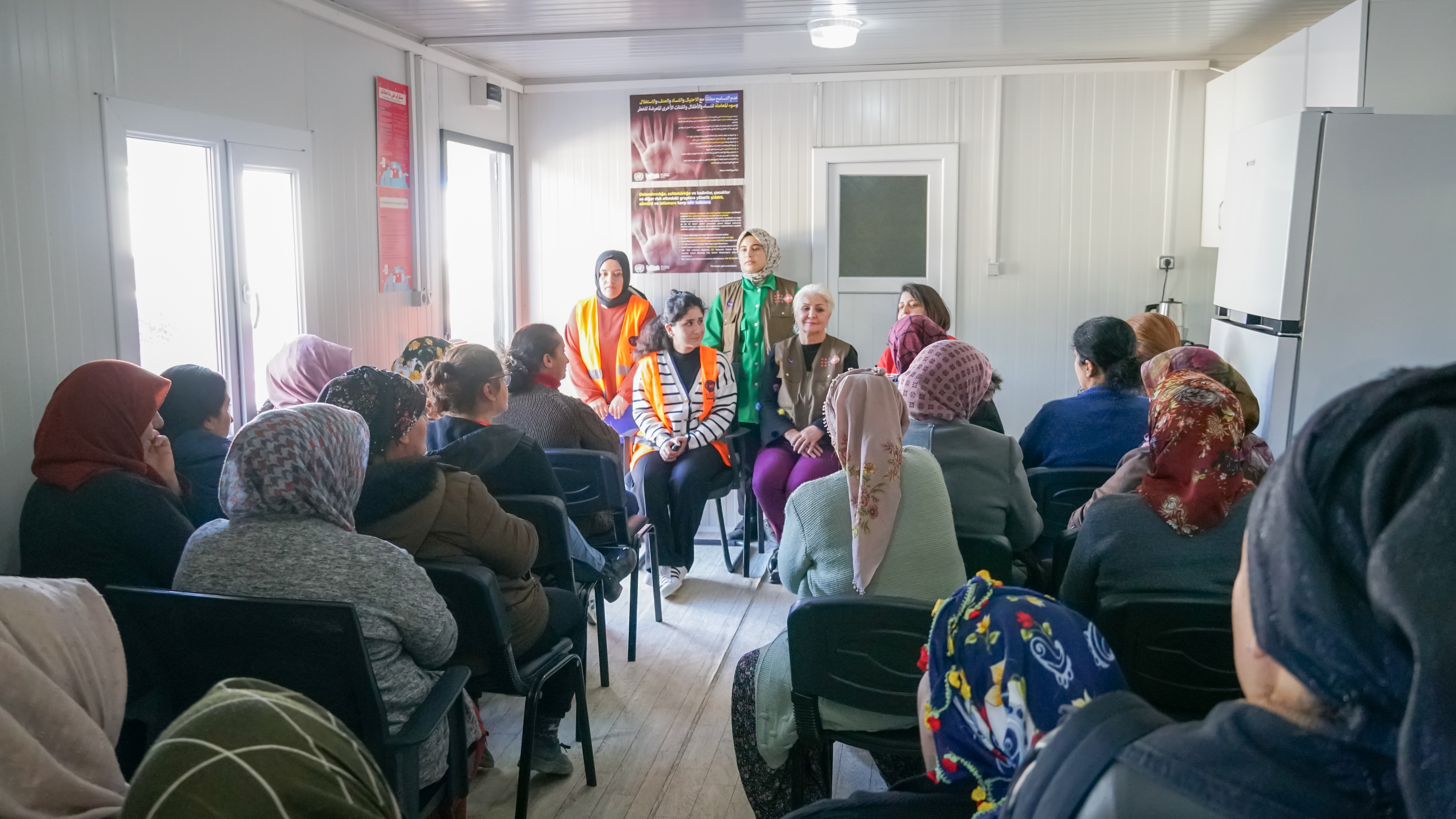
Strenthengining Protection Services and Referral Pathways
With the support of the Government of Norway, UNFPA also provided four containers and service providers (3 social service experts, 3 psychologists and an Arabic-Turkish translator) to revitalize two Violence Prevention and Monitoring Centers (ŞÖNİM) of the Ministry of Family and Social Services in Adıyaman and Hatay.
In addition, UNFPA procured and distributed 4,000 female dignity kits in Adıyaman, Malatya, Kahramanmaraş, Diyarbakır, Gaziantep and Şanlıurfa, to reduce the protection risks of women in need. These contributions aimed to contribute to the continued response in protection services, including the referral pathways.
Moreover, through the partnership with ACEV, the Girls Power Programme, inclusive of subjects of child early and forced marriages, comprehensive sexuality education and gender-based violence, was developed for adolescent girls, consisting of 14 sessions. The programme was piloted in container settlements in Adıyaman. Parental Support Programme was also strengthened to reach out to fathers in the earthquake region and raise their awareness on gender equality, gender based violence and child, early and forced marriages.
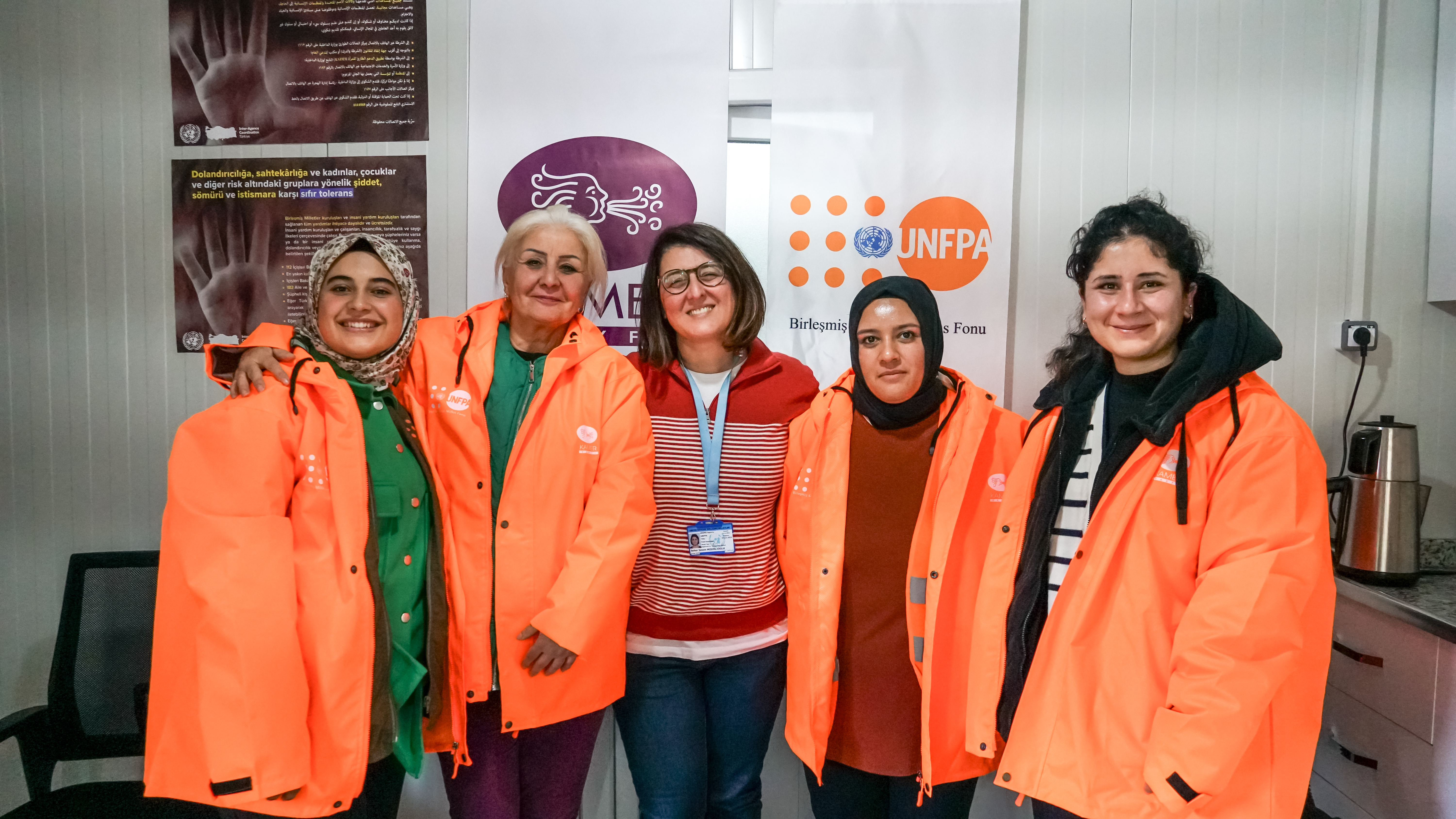
Thanks to the generous support of the Government of Norway, in close collaboration with the Government of Türkiye and in partnership with KAMER and AÇEV, in 2023, UNFPA helped improve the well-being and resilience of the women and girls in the earthquake-affected region by providing health, protection, safety, and empowerment support.
UNFPA, with its partners, has been on the ground since day one and will continue in 2024 to provide SRH and GBV prevention and response services to those in need through its static units and mobile teams.

